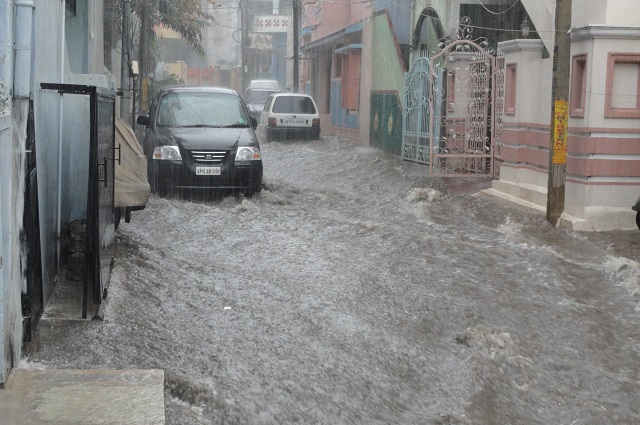News Story
(Below is a backup copy of the original article with as much credit to the publisher as well as the author that we can provide. By no means do we mean to violate any copyright laws. This page is appearing because someone indicated that the original story was unavailable.)
First Coronation role in 500 years for Catholic bishops
Cardinal Pietro Parolin and Archbishop Miguel Maury Buendía will represent Pope Francis in Westminster Abbey.
First Coronation role in 500 years for Catholic bishops
Catholics were not permitted to attend non-Catholic services when Elizabeth II was crowned in 1953. Cardinal Vincent Nichols recalls it as the first he watched television.
PA Images/Alamy
Cardinal Vincent Nichols is to become the first Catholic bishop to play a formal role in the Coronation of a British monarch since the Reformation, when he blesses King Charles III during the ceremony in Westminster Abbey on 6 May.
It will be witnessed by a papal delegation led by Cardinal Pietro Parolin, the Holy See Secretary of State, the first papal representative to participate in a British Coronation for almost 500 years.
Cardinal Nichols told The Tablet that the Coronation is a “remarkable moment” for ecumenical relations, pointing out that as a young boy in 1953 he “would never have dreamt of stepping inside” a non-Catholic church.
This Saturday, the Archbishop of Westminster won’t only be inside the Abbey but will impart a blessing on the newly-crowned King. It makes him the first Catholic bishop to take an active part in the Coronation of a British monarch since Bishop Owen Oglethorpe administered the crowning of Queen Elizabeth I in 1559.
Other Catholic prelates attending the Coronation include Archbishop Eamon Martin of Armagh, Primate of All-Ireland, Bishop Hugh Gilbert of Aberdeen, president of Scotland’s bishops’ conference, and Archbishop Mark O’Toole of Cardiff.
History will also be made when Cardinal Parolin takes his seat in the Abbey for the Coronation along with the newly-appointed apostolic nuncio to Great Britain, Archbishop Miguel Maury Buendí. Both are representing Francis for the occasion.
Prof Diarmuid MacCulloch, Emeritus Professor of the History of the Church at Oxford, said it is likely that the last time a cardinal was involved in a Coronation in Britain was in 1543 when Cardinal David Beaton presided at the crowning of the infant Mary Queen of Scots.
Chris Trott, the UK ambassador to the Holy See, said the last papal representation to participate at a Coronation was that of Mary I, who unsuccessfully tried to reverse the Reformation and return to England to Catholicism. She was crowned by Catholic Bishop Stephen Gardiner in 1553.
The presence of papal representatives in the Abbey will be a change to the Coronation of Queen Elizabeth in 1953, when representatives witnessed the procession to and from the Abbey but did not enter the church building.
Cardinal Bernard Griffin, the Archbishop of Westminster, did not attend the ceremony, or stand outside the Abbey. He did, however, say a Mass for the Queen in Westminster Cathedral on the eve of the Coronation.
At that time, Catholics were not permitted to attend non-Catholic services in churches. Some exceptions were made, however, including for Catholics involved in the Coronation, such as the Duke of Norfolk. The formal ban was lifted over subsequent decades thanks to ecumenical efforts and the reforms of the Second Vatican Council. These changes were codified in the Holy See’s 1993 ecumenical directory.
“I can recall 1953 and the last Coronation, which was the first time I watched television. I remember receiving the mug, the bar of chocolate that children were given,” Cardinal Nichols, 77, said.
“But at that time, we would never have dreamt of stepping inside a church that wasn't a Catholic church.”
The Archbishop of Westminster described the Catholic participation in the Coronation as a “coming together again”, pointing out that Coronation liturgies were Catholic for 500 years, and have been Protestant for 400 years since.
He said that the forthcoming Coronation service, which includes the celebration of the Eucharist, includes numerous prayers that Catholics will be familiar with. The Gloria is taken from William Byrd’s sixteenth-century “Mass for Four Voices”, written for recusants who had refused to be part of the newly-established Church of England.
“The Catholic participation is not new,” Cardinal Nichols pointed out. “It's radical because it’s a renewing of something that has been broken for so long.”
He added: “It is reciprocal ecumenism, an exchange of gifts.”
Nevertheless, the Coronation of a British monarch is a rite of the established Church of England. During the ceremony, the King will pledge to maintain the “Protestant Reformed Religion” and “secure the Protestant Succession to the Throne.”
Catholics remain legally forbidden from becoming monarchs of the United Kingdom.
While the cardinal admitted that the “historic words are sharp”, he insisted that the King sets “his wholeheartedly-accepted constitutional duty into the wider context of our contemporary nation”.
Cardinal Nichols explained that soon after the King makes the Protestant oaths, a new prayer has been added to the service where Charles will pray to God to be “a blessing to all thy children, of every faith and conviction.”
The ceremony “respects history deeply and yet also complements it in a whole number of ways”, the cardinal said.
He said his blessing comes at a “pretty central moment”, straight after the crown has been placed on the King’s head.
The cardinal will give an individual blessing along with the Archbishops of Canterbury and York and leaders of other denominations, with the order of service explaining that due to “the progress in ecumenical relations...for the first time, this blessing is to be shared by Christian leaders across the country”.
Cardinal Nichols said that the King “has the highest regard for the Catholic Church” and that in March he had given the King a “loyal address” on behalf of the Catholic community.

